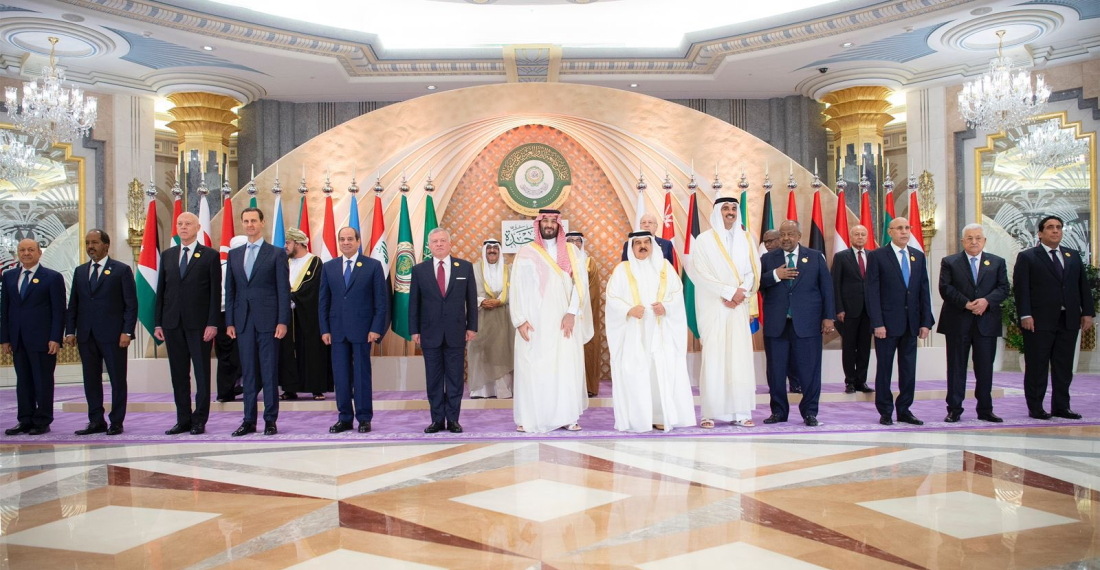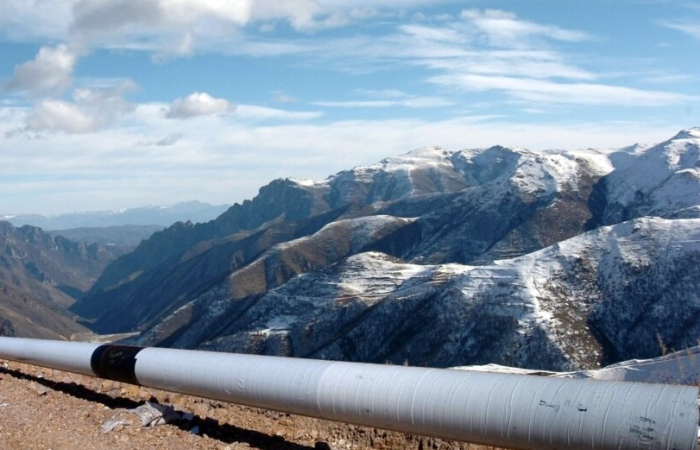This editorial first appeared in the 23 May 2023 issue of our newsletter, Arabia Concise. If you would like to subscribe to Arabia Concise, or any other of our newsletters, please click here.
Following last week's Arab League summit in Jeddah, "it is expected that Saudi Arabia will continue to use its year-long chairmanship of the Arab League to reshape the institution, and more broadly to reconfigure pan Arab-affairs, of course with Saudi Arabia at the helm," writes commonspace.eu in this editorial. "For it is this new ambition of the Kingdom to become a leading regional and global player that has defined the summit, and will define its chairmanship of the Arab League over the next year."
Many, both in the Arab World and beyond, have long written off the Arab League as a moribund organisation, fit only as a forum for squabbling Arab Governments - a showcase of the failures of the Arabs rather than their achievements.
Its first quarter-century of existence since its foundation in 1945 coincided with a wave of nationalism that swept across the Arab world, a resurgence of an Arab identity, and a quest for unity. In Gamal Abdel Nasser who led Egypt from 1953-1970, the Arabs found a leader who could talk the language of the masses, and inspire them. The Arab League became the torch bearer of the dreams of the Arabs, inspiring those still under the toil of colonialism - from Algiers to Aden - and offering hope for displaced Palestinians longing to return to their homeland.
The devastating defeat at the hands of the Israelis in the 1967 six-day war left the Arabs weak and humiliated. Arab nationalist rhetoric lasted a while longer, but it had lost its sting. The Arab League from its headquarters in Cairo, and in its yearly summits held in different Arab capitals, reflected these trends. From being the vanguard of the dreams of the Arabs it became an expression of their failures, exposing the divisions, the problems in governance, the economic failures and the general lethargy. For a while it even became difficult to find countries willing to host the once prestigious summits.
All this appeared to have changed last week, at the League’s 32nd summit, held on 18-19 May in the Saudi port city of Jeddah, which also ushered in a year in which Saudi Arabia will chair the organisation.
The summit formally healed some of the divisions of the last decade. Syria’s President Bashar al Assad attended, marking the full return of Syria into the Arab fold. There was a lot of talk of a new era of peace in the Middle East, and even Iran was now perceived as more of a partner rather than an enemy.
Yet the summit gathered whilst a few miles away, across the waters of the Red Sea from Jeddah, a bloody civil war raged on in Sudan.
Observers of Arab politics noted in the Jeddah summit, and its subsequent final declaration, a change of tone which they considered significant. The Palestinian academic, Daoud Kuttab, writing for Arab News, said that “anyone who analyses the final statement in Jeddah and compares it, for example, to the Algiers Declaration of the 31st Arab League Summit will notice a vast difference. The differences include initiatives and concerns that were not mentioned in any previous Arab summit statement.”
He adds that “the Arab countries that signed the Jeddah Declaration may have begun the journey of thousands of miles of Arab Renaissance with steady steps. The big test will be in the implementation of these promises”. (Read his op-ed on Arab News here).
The Arab League has a long history of agreements that were broken as soon as they were signed, unfulfilled promises, and the use of flowery language that bears little resemblance to reality. It is therefore significant that many Arab columnists felt that this summit and its declaration were different. For sure there were the usual statements on Arab solidarity, Palestine, Jerusalem and so on, but there were also references to other issues including in areas of economy and innovation.
The change reflects the new, assertive and pragmatic Saudi diplomacy, inspired by Crown Prince Mohamed bin Salman, and currently being executed by Saudi diplomacy - an institution that until recently was more characterised by its lethargy than its dynamism. It is expected that Saudi Arabia will continue to use its year-long chairmanship of the Arab League to reshape the institution, and more broadly to reconfigure pan Arab-affairs, of course with Saudi Arabia at the helm. For it is this new ambition of the Kingdom to become a leading regional and global player that has defined the summit, and will define its chairmanship of the Arab League over the next year.
Not all Arab countries, be they near or far, are keen on this Saudi role, but for the moment they are all mostly playing along. Mohammed bin Salman will soon find out that keeping everyone around the table is an achievement in itself, though it is unlikely he will be satisfied with that.
A surprise guest at the Jeddah summit
The appearance of the President of Ukraine, Volodymyr Zelensky, at the Arab Summit in Jeddah took many by surprise, not least some of the Arab Heads of States present who apparently were told of the visitor only shortly before he popped into their meeting room to address them.
Arab countries have been amongst the most tepid in their support for Ukraine following its full-scale invasion by Russia in February 2022. For Zelensky therefore the invitation by Saudi Arabia to attend and speak at the summit was a victory. The Russians would certainly have preferred that he was not there. Some Arab allies of Russia in the room were not happy either. Syria’s president took off his headphones whilst Zelensky was speaking. This did not stop Zelensky making the case of his country in his usual eloquent style.
For the Saudis, Zelensky’s presence was yet another confirmation of their increased importance on the world stage. Saudi Arabia has offered its good offices in mediating between Russia and Ukraine. Neither side is likely to take up the offer, but both sides see some value in keeping the Saudi channel open to deal with specific issues that may arise, and where Saudi Arabia may have the clout to influence circumstances.






